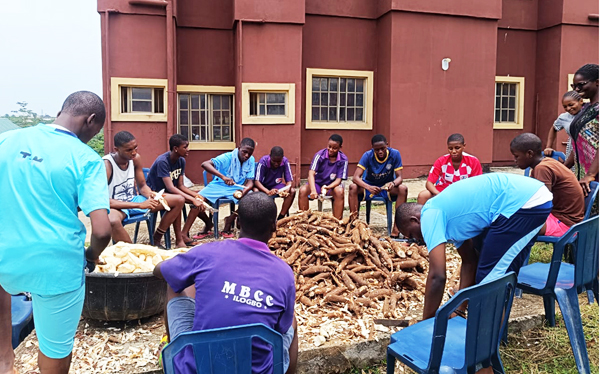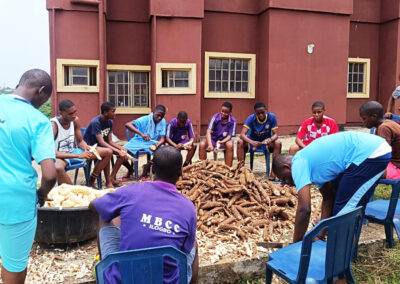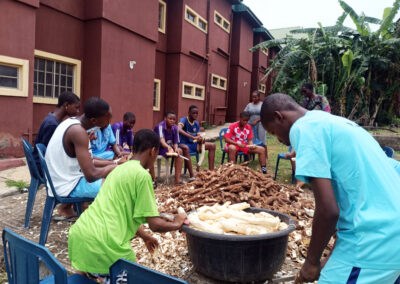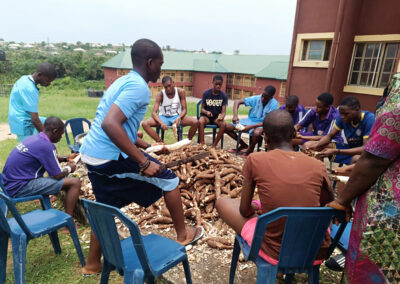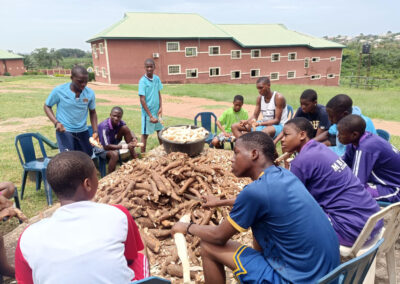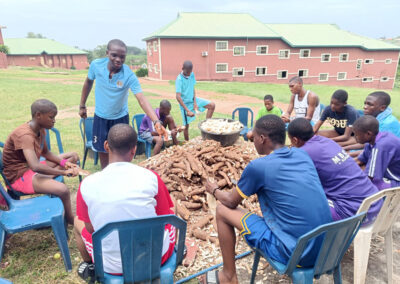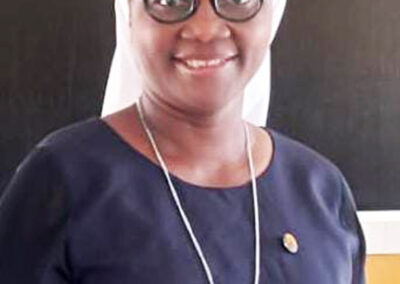As part of the practical agricultural courses given in Nigerian secondary schools – such as Collège Marie-Balavenne, a school run by the Daughters of the Holy Spirit – the pupils, guided by their teachers, learn how to grow certain useful plants and transform them into food: maize, yams, manioc, potatoes, groundnuts and other cereal crops.
Cassava is one of Nigeria’s most popular crops. Once processed, it can be used to prepare a whole range of meals: garri, fufu, etc., eaten with any well-balanced vegetable soup. Cassava can also be processed into flakes and, in some agricultural industries, into flour for making snacks.
At Marie-Balavenne College, we chose to grow cassava. It was a good opportunity to show some of the students how manioc is planted: even though they didn’t do the work themselves, they learned a lot. Some of the students laughed at themselves, joking: ‘Some of us, who tend to eat more cassava-based products than others, have never known how cassava is planted, harvested, let alone processed.’ What a great opportunity to learn!
On 27 April, after the manioc had been harvested, I, Rosemary Etim DHS, headmistress, saw the openness of the pupils who volunteered to take a closer look at the processing stages. I gathered them together in their free time in a specific classroom, so that they could get down to the task.
The task began by cutting the hard stalk of the cassava with knives, followed by peeling the cassava in large bowls. It was gradually explained to them that once the peeling was complete, the cassava would be washed so that it was ready to be ground. The water is then extracted using a special machine, the husk is sieved and the cassava is fried, making garri. A good number of students were motivated, although the exercise was a little intimidating, especially for those who had never taken part in such a task before. It became more interesting as they engaged in discussion and asked questions to gain a better understanding.
The students concluded that the exercise was fun, wonderful and a learning opportunity for all of them and that it was a good initiative by Sister Etim. They were very proud that they had been able to work together on a task that would benefit them all. Some were very excited to tell their parents the news of their success.
‘It’s the work of our hands, and we’re happy to have been part of it.’
Sister Rosemary ETIM, DHS – Published on 5 May 2025

